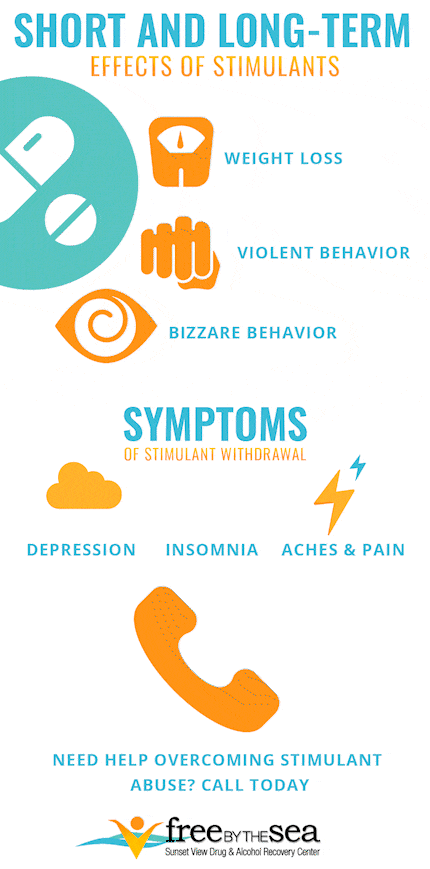Stimulant addiction is a growing concern in Ocean Park, Washington, affecting individuals from all walks of life. Whether it’s cocaine, methamphetamine, or prescription stimulants, the impact of these substances can be devastating. However, with the right support from accredited treatment centers, recovery is possible.
Our stimulants rehab in Ocean Park, Washington, offers comprehensive programs designed to help individuals break free from addiction and regain control of their lives. From evidence-based therapies to holistic approaches, these rehab centers provide a range of services tailored to each individual’s needs, setting the foundation for a lasting recovery.
Drug addiction is an escalating issue, with stimulant abuse being one of the primary contributors. If you or someone you know is using stimulants, our addiction treatment programs in Ocean Park, Washington, can help.
What are Stimulants?
Stimulants are a class of drugs that increase brain activity, resulting in heightened alertness, increased energy, and improved focus. These substances can be both legal and illegal, and they work by stimulating the central nervous system. While some stimulants, like caffeine and prescribed medications for ADHD, are used safely under supervision, others, like cocaine and methamphetamine, can be highly addictive and dangerous.
Stimulants are commonly used for their effects on mood, concentration, and physical energy. Still, when abused, they can lead to serious health risks, including addiction, heart problems, and mental health issues. Learn how our rehab in Washington State can help you or a loved one.
Common Types of Stimulant Drugs
Methamphetamine
Methamphetamine, or meth, is a potent stimulant that acts quickly on the brain and body. Its effects can be felt almost immediately after smoking it, with a high that can last anywhere from 4 to 8 hours. Meth is associated with intense feelings of euphoria and energy but can also lead to severe long-term damage to the brain and body.
In Washington, methamphetamine continues to be a leading cause of drug-related deaths. In 2023, it was involved in over 70% of drug poisonings, often in combination with opioids such as fentanyl. While there has been a slight decrease in methamphetamine-related deaths in 2024, this trend may fluctuate as more data becomes available.
Cocaine
Cocaine is a powerful and illegal stimulant derived from the leaves of the coca plant. It typically appears as a white powder and was once used in the late 1800s as a treatment for various psychological disorders, but its addictive properties led to its discontinuation for medical use.
In Washington State, approximately 1.5% of residents aged 12 or older reported using cocaine in the past year, according to the 2023 National Survey on Drug Use and Health. This highly addictive stimulant can lead to serious health risks, including heart attack, stroke, and death, highlighting the importance of seeking help at our cocaine rehab in Washington State.
Nicotine
Nicotine is the most widely used stimulant, found primarily in tobacco products like cigarettes and cigars. It is highly addictive and leads to long-term health issues such as lung disease, heart disease, and cancer.
In Washington, 15.6% of residents aged 12 or older reported using nicotine products, including both traditional cigarettes and vaping products, in the past month, according to the 2023 National Survey on Drug Use and Health. Despite ongoing anti-smoking efforts, nicotine addiction continues to be a significant public health issue, particularly with the rising popularity of e-cigarettes.
Prescription Stimulants
While many stimulant drugs are illicit, some are prescribed to treat medical conditions, particularly attention-deficit hyperactivity disorder (ADHD) and narcolepsy. However, when abused, prescription stimulants can lead to addiction.
- Adderall: Adderall is one of the most commonly prescribed stimulants for ADHD. It has become widely used but is also frequently abused for its stimulant effects.
- Dexedrine: Also known as dextroamphetamine, this drug has been prescribed since 1976. Originally used to treat ADHD, it was also utilized by military personnel during missions requiring extended wakefulness.
- Ritalin: Ritalin is methylphenidate, which differs from Adderall and Dexedrine. It is commonly prescribed to treat ADHD in children and adults.
- Concerta: Introduced in 2000, Concerta is an extended-release version of Ritalin, often used to treat ADHD.
- Desoxyn: A prescription methamphetamine, Desoxyn was originally used to treat obesity. It is still prescribed for ADHD under strict medical supervision.
- Ephedrine: Typically used as a bronchodilator for asthma, ephedrine is also an appetite suppressant.
Caffeine
Caffeine, a stimulant found in tea, coffee, cocoa, and chocolate, is the most commonly used stimulant worldwide. While it is generally considered safe in moderate amounts, excessive caffeine intake can lead to dependence and negative health effects, including anxiety, sleep disturbances, and heart palpitations.
Stimulant abuse, whether from illicit drugs, prescription medications, or commonly used substances like nicotine and caffeine, can lead to addiction and severe health complications. As the statistics indicate, stimulant addiction remains a pressing concern, highlighting the need for family education and support in Ocean Park, Washington.
How Do Stimulants Affect The Body And Brain?

Stimulants are substances that increase activity in the central nervous system, resulting in heightened alertness, energy, and focus. While some stimulants, like caffeine, are commonly consumed in everyday life, others, such as cocaine and methamphetamine, can have dangerous and long-lasting effects on both the brain and body.
Impact on the Brain
Stimulants primarily affect the brain by increasing the levels of certain neurotransmitters, such as dopamine and norepinephrine. These chemicals are responsible for regulating mood, attention, and pleasure. When a stimulant is consumed, it causes a rush of dopamine, which creates feelings of euphoria and intense energy. This effect is what makes stimulants highly addictive, as individuals seek to replicate the pleasurable sensations.
Over time, repeated stimulant use can alter the brain’s chemistry, leading to changes in behavior and mood regulation. Chronic use can impair the brain’s ability to produce dopamine naturally, resulting in a reliance on the drug to feel pleasure or motivation. This disruption in brain function can contribute to anxiety, paranoia, and other mental health disorders. Discover how we treat co-occurring disorders through dual diagnosis treatment in Washington State.
Effects on the Body
Stimulants have a significant impact on the body as well, leading to physical changes that can be harmful in both the short and long term. Common effects of stimulant use include:
- Increased Heart Rate: Stimulants raise the heart rate and blood pressure, which can increase the risk of heart attacks, strokes, and arrhythmias.
- Elevated Body Temperature: Many stimulants, especially methamphetamine, can cause hyperthermia, or dangerously high body temperature, which can lead to organ failure or death.
- Decreased Appetite: Stimulants suppress appetite, which can lead to malnutrition and weight loss if used over a prolonged period.
- Dilated Pupils: A common physical sign of stimulant use, dilated pupils are a result of the drug’s effects on the nervous system.
The combination of these effects can have serious long-term consequences on physical health, especially with chronic use.
Understanding how stimulants affect the body and brain is crucial for recognizing the dangers of misuse and seeking addiction therapy in Washington State for those struggling.
Short-Term and Long-Term Effects Of Stimulants

Among the known facts about stimulants is that they have effects when abused or used in large doses. They can either be mild and short-term or severe and long-term.
Short-Term Effects
- Panic
- Nausea
- Lost appetite
- Nervousness
- Dilated pupils
- Difficulty sleeping
- Bizarre and violent behavior
- Irritability, hallucinations, and hyperexcitability
- Increased blood pressure, heart rate, and body temperature
Long-Term Effects
- Psychosis
- Depression
- Brain damage
- Weight loss or malnutrition
- Kidney, liver, and lung damage
- Strokes and heart attacks due to increased blood pressure
Signs And Symptoms Of Stimulant Abuse

Stimulant abuse can lead to very serious physical and co-occurring health issues. Therefore, understanding the signs of someone who is abusing stimulants is of absolute importance. Some of the signs of stimulant abuse include:
- Sweating
- Weight loss
- Dilated pupils
- Restlessness
- Hyperactivity
- Loss of appetite
- Mood swings
- Hyper-focus
- Rapid heartbeat
- Racing thoughts
- Increased confidence
- Increased blood pressure
- Use of illicit stimulant drugs
- Anger and aggressive behavior
- Using more drugs than prescribed
- Deceptive behavior like stealing or lying
- Using prescription drugs without a doctor’s prescription
Stimulant Withdrawal Symptoms
Stimulant withdrawal occurs when a person who is dependent on substances like cocaine, methamphetamine, or prescription stimulants stops using them. The withdrawal symptoms can vary in intensity, but they generally involve both physical and psychological effects.
Some of the stimulant withdrawal symptoms include:
- Fatigue
- Irritability
- Twitching
- Depression
- Aches and pains
- Increased appetite
- Insomnia or hypersomnia
- Unpleasant, vivid dreams
Stimulant Addiction Treatment

Located in the serene coastal town of Ocean Park, Washington, Free by the Sea offers specialized substance abuse treatment for stimulant addiction, including substances like methamphetamine, cocaine, and prescription stimulants. Our comprehensive approach combines evidence-based therapies with outpatient and inpatient rehab options to address both the physical and psychological aspects of addiction.
Comprehensive Treatment Programs
Following completion of our medical detox program, Free by the Sea provides a range of treatment options tailored to individual needs:
- Residential Treatment: Residential inpatient treatment offers a structured environment with 24/7 support, ideal for those requiring intensive care.
- Partial Hospitalization Program (PHP): A step-down from inpatient care, a partial hospitalization program includes daily therapy sessions while allowing clients to return home in the evenings.
- Intensive Outpatient Program (IOP): Designed for individuals who need flexible treatment schedules, intensive outpatient treatment combines therapy sessions with daily responsibilities.
- Outpatient Program: Outpatient rehab provides ongoing support for individuals transitioning back into daily life, focusing on relapse prevention and continued recovery.
- Medication-Assisted Treatment (MAT): Utilizes FDA-approved medications like Suboxone and Naltrexone to manage withdrawal symptoms and reduce cravings.
Addiction Counseling
Counseling is one of the main aspects of a recovery journey. At Free By The Sea, clients can choose between group therapy and individual counseling sessions.
At Free by the Sea, treatment includes various group and individual therapy programs such as:
- Cognitive Behavioral Therapy (CBT): Helps individuals identify and change negative thought patterns and behaviors associated with addiction.
- Dialectical Behavior Therapy (DBT): Focuses on teaching coping skills and emotional regulation to manage stress and triggers.
- Eye Movement Desensitization and Reprocessing (EMDR): Aids in processing traumatic memories that may contribute to substance use.
- Trauma-Informed Counseling: Addresses underlying trauma that often co-occurs with addiction.
- Holistic Therapies: Includes yoga, sound healing, and life skills training to promote overall well-being.
Choose Free by the Sea for Lasting Recovery
Situated on five acres of beachfront property, Free by the Sea provides a tranquil setting conducive to healing. Our facility offers comfortable accommodations, nutritious meals, and recreational activities to support physical and emotional recovery.
Insurance and Admissions
Free by the Sea works with most major insurance providers, including Cigna, Blue Cross Blue Shield, Kaiser Permanente, and Premera, among others. We also offer a no-cost, no-commitment insurance verification process to assist prospective clients. Verify your insurance to get started today.
Serene Recovery Environment
For the recovery journey to be successful, we prioritize that our clients be in a comfortable environment. At Feel By The Sea, we make sure that our center’s atmosphere is conducive for our patients. There are snacks available, 24/7, laundry facilities, and well-furnished rooms. This makes our clients feel like they are at home. We ensure that our staff are always available, so clients will never feel short of advice or support.
Finding Help for Stimulant Addiction at Free by the Sea

Stimulant addiction can feel overwhelming, but with ongoing treatment and support, recovery is not only possible, it’s achievable. At Free by the Sea in Ocean Park, Washington, our treatment professionals are ready to guide you through every step of your journey. With personalized treatment plans, evidence-based therapies, and a tranquil, supportive environment, Free by the Sea offers a comprehensive approach to overcoming stimulant addiction.
If you or a loved one is ready to take the first step towards lasting recovery, reach out to Free by the Sea today. With our dedicated team and proven programs, you don’t have to go through the recovery process alone. Contact us today to learn more about our Ocean Park addiction treatment programs.
References:
https://www.ncbi.nlm.nih.gov/books/NBK424860/
https://pmc.ncbi.nlm.nih.gov/articles/PMC9097961/
https://pmc.ncbi.nlm.nih.gov/articles/PMC7183384/
https://pmc.ncbi.nlm.nih.gov/articles/PMC7274878/
https://www.cdc.gov/tobacco/e-cigarettes/youth.html
https://www.cdc.gov/nchs/products/databriefs/db491.htm
https://www.cdc.gov/mmwr/volumes/73/wr/mm7348a2.htm
https://www.cdc.gov/mmwr/volumes/72/wr/mm7244a1.htm
https://adai.washington.edu/wadata/methamphetamine.htm
https://www.cdc.gov/nchs/nvss/vsrr/drug-overdose-data.htm
https://www.dea.gov/sites/default/files/2024-05/NDTA_2024.pdf
https://doh.wa.gov/data-statistical-reports/health-behaviors/tobacco
https://nida.nih.gov/research-topics/trends-statistics/overdose-death-rates
https://news.illinois.edu/how-should-we-view-the-national-decline-in-drug-overdose-deaths/
https://www.oregon.gov/oha/ph/preventionwellness/substanceuse/opioids/pages/fentanylfacts.a
https://www.fda.gov/tobacco-products/youth-and-tobacco/results-annual-national-youth-tobacco-survey

Dr. Richard Crabbe joined our team in 2019 as our psychiatrist and medical director. He attended the University of Ghana Medical School where he became a Medical Doctor in 1977. From 1978 through 1984, he was a medical officer in the Ghana Navy and provided a variety of services from general medicine to surgeries. He received his Certificate in General Psychology from the American Board of Psychology and Neurology in 2002.
Insurances We Accept
Free by the Sea recognizes the importance of having insurance to receive addiction treatment. Let us work with you to provide you or a loved one with premier addiction treatment services. We accept several private insurance plans. Verify your rehab coverage with us today to ensure you receive the support that you need! Find out if you are covered today!











